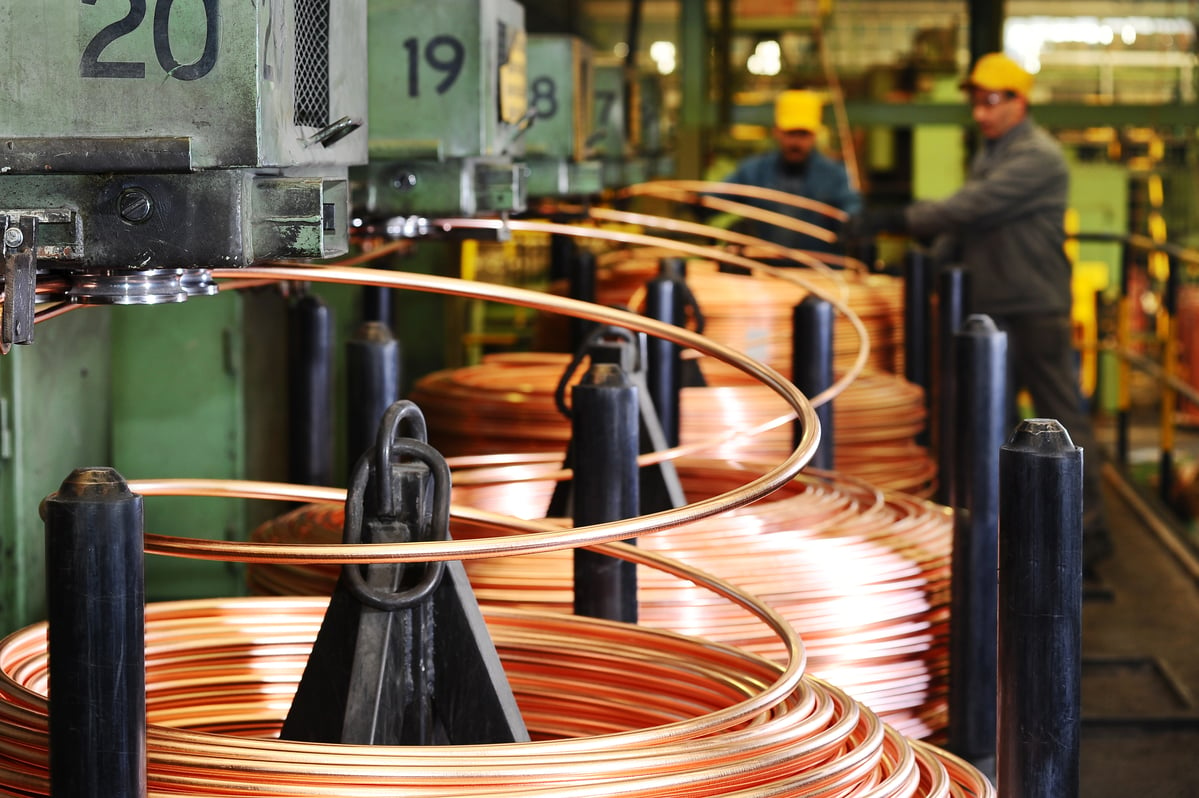Freeport-McMoRan (FCX +3.62%) shares were down by almost 10% during the week to Thursday at noon. The decline stems from the Trump administration's decision to exempt refined copper imports from 50% tariffs.
Freeport-McMoRan and copper tariffs
While the administration will tariff semi-finished goods such as wiring, electrical fittings, and pipes by 50%, the decision to exempt refined copper is a negative for Freeport. As Chairman Richard Adkerson noted on the recent earnings call, "We are the dominant producer in the U.S., producing over 70% of the country's refined copper."

NYSE: FCX
Key Data Points
As such, the company is a key beneficiary in times when the market is willing to pay a premium for the U.S. price of copper on the Commodity Exchange (COMEX) and the international price traded on the London Metal Exchange (LME). That premium was in play in 2025 as speculators pushed the COMEX price up as they rushed to buy copper ahead of a potential tariff on imports of refined copper.
Fast-forward to this week, and that premium abruptly disappeared, taking the COMEX price crashing down from about $5.60 per pound at the start of the week to about $4.35 per pound as I write.
What it means to the investment case for Freeport-McMoRan stock
According to Freeport's models, a 50% COMEX premium (a reasonable assumption if a 50% tariff had been imposed) would result in 20% higher earnings before interest, taxes, depreciation, and amortization (EBITDA) in 2026-2027.

Image source: Getty Images.
Still, even with the premium dissipated and the COMEX and LME prices close to each other again at $4.35 per pound, Freeport should generate $12.9 billion in EBITDA, and with a current enterprise value of about $67.7 billion, it trades on 5.2 times EBITDA in 2026-2027. That's too cheap, and the stock remains attractive.





